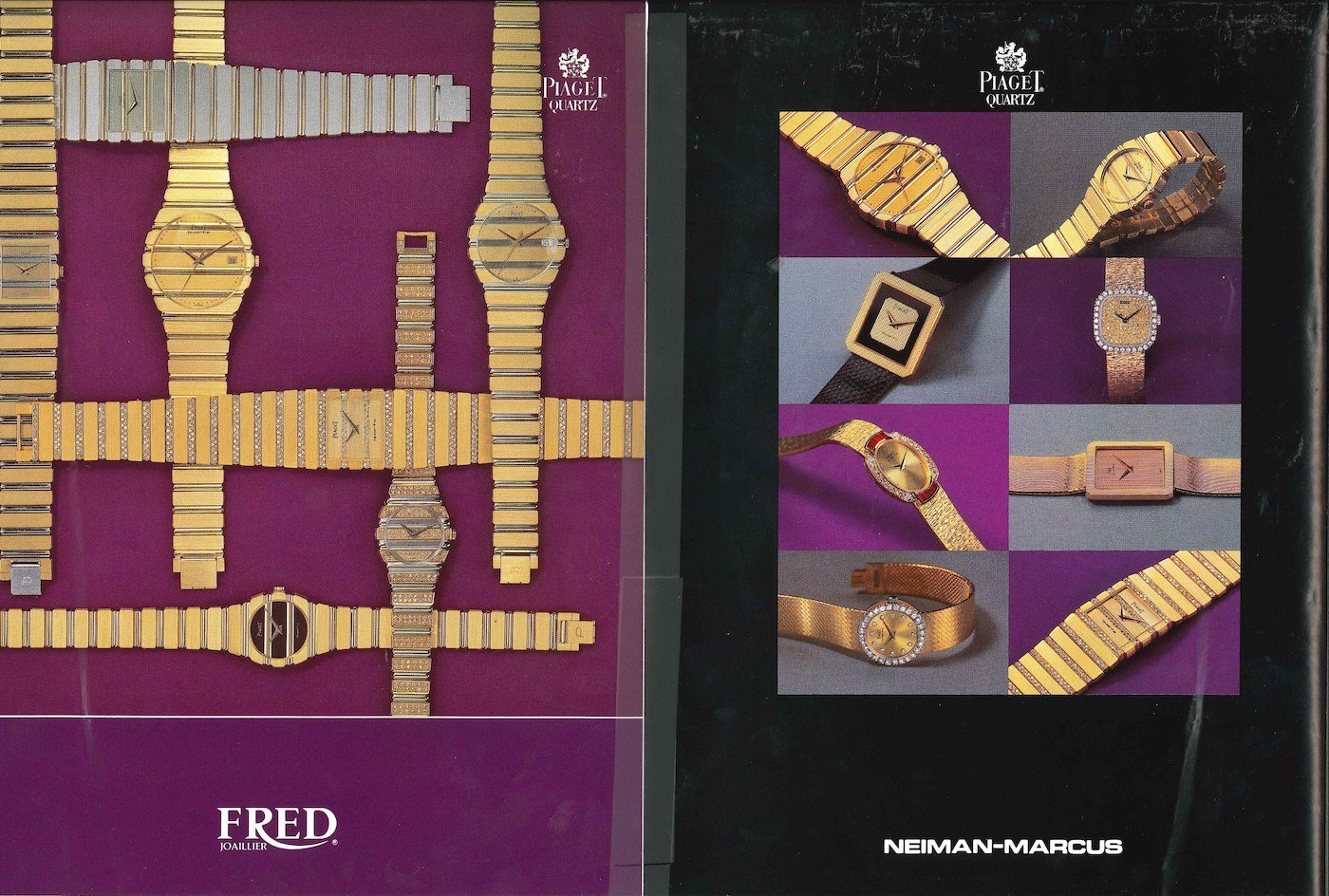iaget already had a long-established reputation for elegant watches, but at the dawn of the 1980s the lifestyle of his clients was changing.
“We really had to answer to this particular demand of our customers who are used to getting just dress watches,” explained Yves Piaget at the time. “But now our customers like to do more and more sports. That’s part of the evolution of our lives today. They want to be exquisite, even in sport. They want to wear a better watch, even in their sports. So we created this sport line which is waterproof, shockproof.”
The answer to that demand was a watch known simply as Piaget Polo.
-

- The Piaget Polo featured in 1982 in Europa Star
The evocation of the elite sport was entirely in keeping with the elite status enjoyed by Piaget in their Piaget Society. Now, 45 years after its first appearance, this historically significant timepiece is reborn as Piaget Polo 79 and still in keeping with today’s zeitgeist and Piaget Society.
The 1970s had witnessed the arrival of a number of elegant sports watches, mostly in steel, launched by some of the grandest names of Swiss watchmaking. But there had been nothing like Piaget’s Polo: a masterpiece of modern design that conceived timekeeper and bracelet as one aesthetic whole. And in full gold.
A noted equestrian, Yves Piaget crystallised his love of horses and the highlife in a single timepiece that became emblematic of the glamour of the 1980s. Piaget’s Polo was equally at home in the nightclubs of New York (Regine’s, Studio 54 to name just a few) as the Polo Clubs of Palm Beach.
The motif imparted by a construction of alternating polished gadroon and brushed block links continued seamlessly from bracelet, to case, and even to the dial.
Embracing the wrist like a second skin the bracelet was so skilfully wrought in Piaget’s workshops that it appeared to have been sculpted from a single piece of gold : ‘Piaget Polo’ may have been shock resistant and waterproof, but it refused to compromise on luxury and exclusivity at a time when Piaget only worked with precious metals. Advertised as ‘the world’s ultimate sportswatch’, the Piaget Polo was as revolutionary as it was chic.
Its profile on the wrist was guaranteed by Piaget’s mastery of ultra-thin movements both mechanical and quartz. In 1976 Piaget had launched the famous 7P, at the time the thinnest quartz movement in the world, which equipped early examples of Piaget Polo. By the beginning of the 1980s it was superseded by the even thinner 1.95mm 8P. But the celebrated mechanical calibre 9P was also used to make certain models of Piaget Polo. Such was the model’s popularity that it soon appeared in an array of variations: round, square, gem set, bi-colour gold, time-only, perpetual calendar... it even appeared on a leather strap.
Piaget Polo 79 returns to the purest expression of the original design, albeit with a few subtle updates. In line with current tastes the quartz calibre has been eschewed in favour of the ultra-thin 1200P1 in-house self-winding calibre that can be admired through the crystal back of a case that has been slightly enlarged to 38mm.
Otherwise, it is the same masterpiece executed entirely in 18 carat gold that dazzled the jet set 45 years ago and is already beloved by the people in the know.











